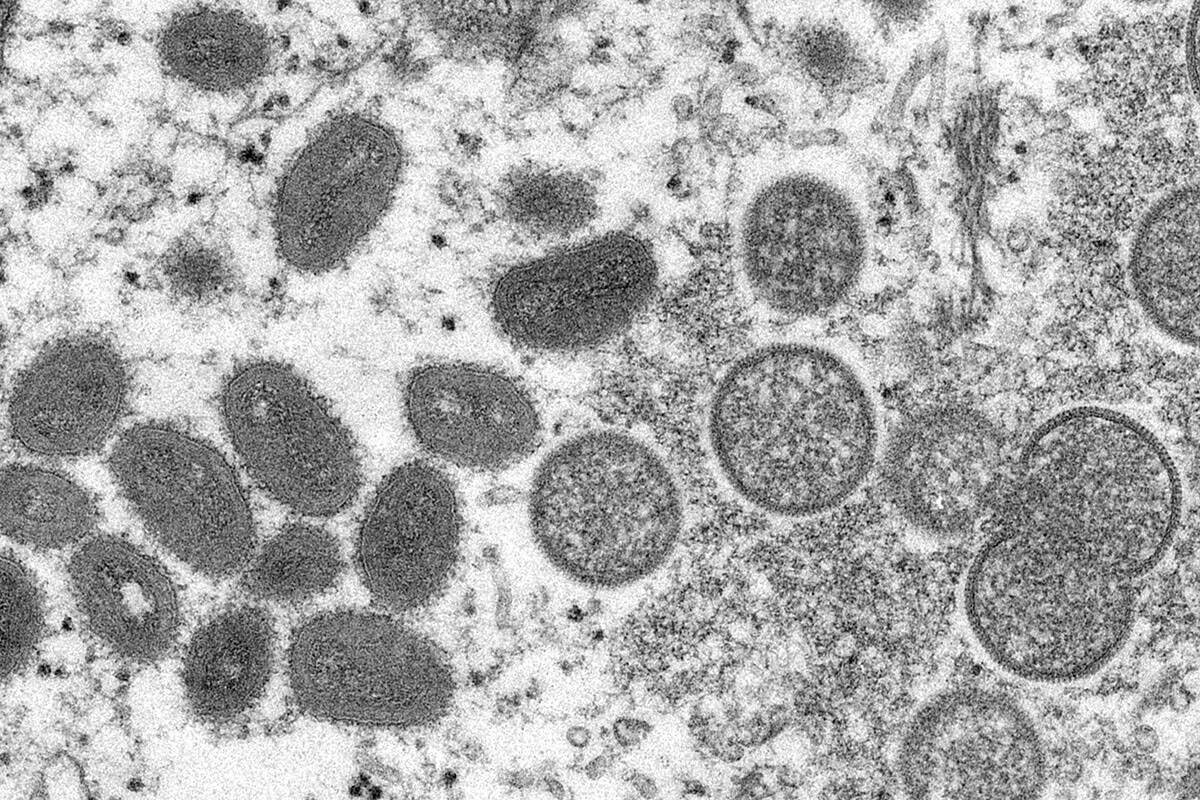6 monkeypox cases investigated in Southern Nevada
The Southern Nevada Health District said Wednesday it has investigated a total of six monkeypox cases in Clark County, all in people who identify as men who have sex with men and are between the ages of 25 and 60.
None of the cases are connected, the agency said.
Monkeypox spreads from person to person through direct contact with the infectious sores, rash, or bodily fluids; through respiratory secretions during prolonged face-to-face contact, or during intimate physical contact, such as kissing, cuddling or sex. It also can spread through touching items such as linens that have been used by a person with monkeypox.
There have been 929 monkeypox cases confirmed recently in the U.S., according to the Centers for Disease Control and Prevention.
CDC representative Kristen Nordlund said there have been no deaths in the U.S. associated with the monkeypox outbreak.
Most of the U.S. cases are in people who have recently traveled internationally and in people who identify as men who have sex with men, she confirmed.
In many of these cases, rashes began in the genital area. The lesions from monkeypox are painful and can lead to scarring, CDC officials have said.
The risk of monkeypox in the U.S. is thought to be low at this time. Monkeypox does not spread easily, and the incubation period between exposure and when symptoms start gives health officials more time to track down contacts and break the chain of infection, the health district said. People who do not have monkeypox signs or symptoms cannot spread the virus to others.
Cases of monkeypox have been rising in the U.S. and across the globe.
There have been 10,611 recent cases reported globally in countries where monkeypox historically isn’t found, according to the CDC.
Monkeypox is regularly found in several Central and West African countries. Cases in people outside Africa are often linked to international travel or imported animals. African rodents and non-human primates such as monkeys may harbor the virus and infect people, according to the CDC.
The health district has ordered an initial shipment of monkeypox vaccines, known by the brand name Jynneos, for high-risk people including laboratory personnel and close contacts. According to the CDC, the vaccine is effective in preventing monkeypox disease up to four days after exposure and may reduce the severity of symptoms if given up to 14 days after exposure.
Contact Mary Hynes at mhynes@reviewjournal.com or 702-383-0336. Follow @MaryHynes1 on Twitter.


















